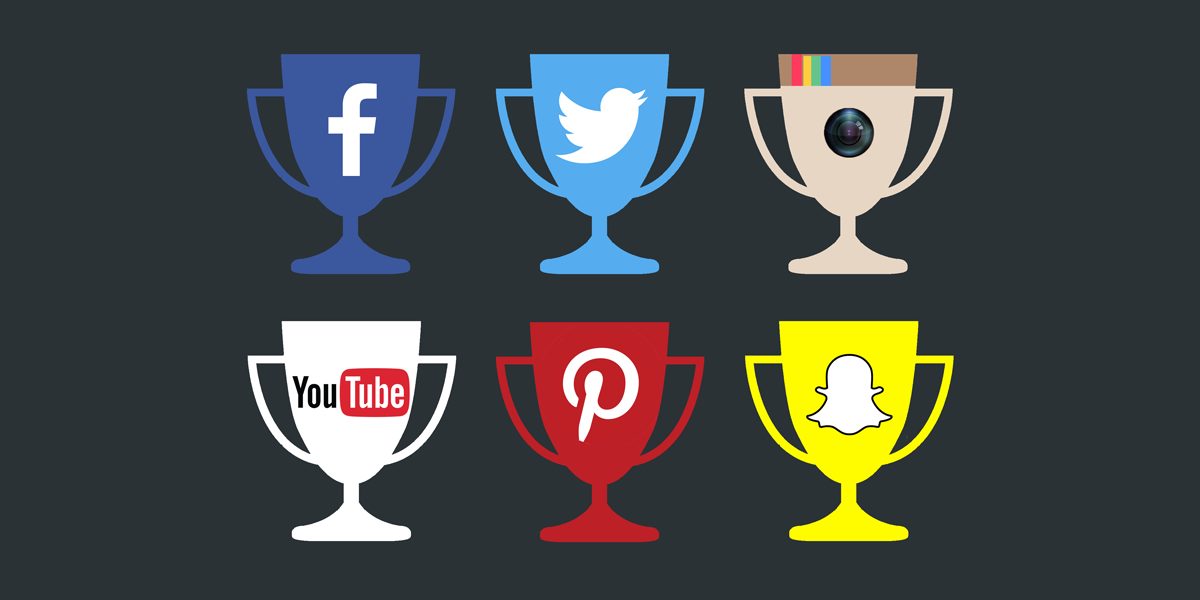Social Media Contest Planning Kit
Rachel Moss
December 22, 2015

After the holidays, shoppers are worn out and so are their wallets. The last thing on consumers’ minds is to buy more – especially after they’ve received most of the gifts from their wish lists already. Are you prepared to handle these disengaged buyers?
While most buyers will avoid visiting your online store or brick-and-mortar location for as long as possible after the holidays, there is one guaranteed place they will be – and that’s sharing about their new goods and holiday experiences on social media. So, what are businesses doing to maximize their chances of keeping their fans engaged? The answer – social media contests.
Running a social media contest can be great for business, but it can also be a lot of work. For this reason, Fuzzy Duck has created a Social Media Contest Planning Kit to help set you up for success. Below are the some of the key take-aways you can expect to find inside the kit.
Goal Definition.
What will this campaign aim to accomplish? How will it contribute to your overall marketing initiatives? Take a look at some of the most common objectives for social media contests below.
| Product or Brand Awareness Get impressions. Extend your reach. Useful for new businesses, rebranding, and new product launches | Customer Retention Increase engagement. Drive referrals. Get fans talking about your brand or products. |
| Conversions Drive local or online sales, subscriptions or registrations, app downloads, product trials, or another pre-defined conversion metric. | Website Traffic Improve click-through rates. Direct fans to a designated landing page on your website. |
| Lead Generation Capture user data. Equip your sales team with qualified leads. Gain a deeper understanding of your audience. Grow your email lists. | Audience Growth Increase your social media following and fan base. Build a stronger online presence. |
Assign Roles.
Who possesses the right skill sets to fulfill each of the following roles? Identify all relevant parties who will need to be involved throughout the contest, as well as any potential weak points or areas where outside help may be necessary.
Optimize For Your Audience.
Describe the intended audience for your campaign using the relevant segmentation factors below. The more specific you are, the easier it will be to avoid wasted coverage on consumers outside of your intended audience later down the road.
| Geographic Factors Countries, states, cities, neighborhoods, zip codes, etc. | Behavioralistic Factors Past purchase history, benefits sought, online search activity, etc. |
| Demographic Factors Age, sex, income, ethnicity, job title, marital status, occupation, etc. | Psychographic Factors Consumer interests, attitudes, values, motivations, lifestyles, etc. |
Choose Your Channels.
First, identify the social networks on which you have an established presence. Take a look at your followers and determine the number of followers you have. Do some research to find out how many more members of your intended audience you have the potential to reach on each social network, then compare the results to determine the primary network on which to host your contest. Next, determine which other channels you will use to promote your contest with the intended audience in mind.
What overall key message or theme do you hope your core audience will take away from your contest? Show how your brand is better than anything else out there. In such a competitive online environment, showing is better than telling. You will need eye-catching visuals from your creatives who will determine the most effective visual communication tactics for your needs, and then bring it to life for you. Then, list some terms that you want consumers to associate with your brand. Which keywords are the most important to include? Should you use a tagline? What hashtag should be created for the social media contest?
Select Your Type of Contest & Promotional Tactics.
There are many different contest types to choose from. Below is a list of some of the most popular tactics with the goals they are best at achieving. Align your answers in this section with the goals you have already selected.
- User Generated Content (UGC) – Ask users to submit content through photo contests, content galleries, video contests, and more.
Goals achieved: audience growth, increasing engagement, extending your reach, and capturing user data. - Curated Experiences and Galleries – Create Look Books of product collections and displays of user photos.
Goals achieved: increasing sales, driving web traffic, and increasing engagement. - Quizzes and Polls – Create fun interactive experiences and capture consumer data.
Goals achieved: increasing engagement and extending your reach. - Refer A Friend – Give consumers an incentive to help get the word out about your campaign.
Goals achieved: audience growth, extending your reach, and capturing user data. - Couponing & Discounts – Offer deals and rewards to social media followers.
Goals achieved: increasing sales, audience growth, driving web traffic, and capturing user data. - Sweepstakes – Prompt consumers to submit their contact info in exchange for chances to win.
Goals achieved: audience growth and capturing user data.
Set the Dates.
Determine how long your contest will need to run before you can reasonably expect to see a return from it? If this is your first contest, start small and work your way up by learning from trial and error. If you have prior experience running social media contests, you may be able to adjust your campaign dates depending on your last campaign’s results.
Forecasting & Budgeting.
Now that the dates have been set, it’s time to think strategically about your budget. How much should be allocated to each activity? What is the maximum and minimum dollar value you are willing to put forth to implement the contest? Consider any software costs, employee time commitment, external agency fees, web design and development work, and your expected promotional spend. Use multiple budget scenarios to estimate what you can reasonably expect to gain from the level of investment you make.
Barriers to Success & Risk Management.
Pinpoint any potential risks and challenges that you might encounter under the implementation stage, and brainstorm ideas with your team for how you will overcome them. Do you have the necessary knowledge and capabilities to handle it internally, or will you be in need of some outside assistance? As you create your list, remember to always prepare for the worst – you’re better off safe rather than sorry.
Measuring Effectiveness.
Determine how you will measure your contest’s results and summarize your findings after implementation. Which analytics metrics are available? What KPIs are important to achieving your overall marketing initiatives through the contest? It may take a few times before you nail your targets – or you might completely blow them out of the water. The most important thing is to record, analyze, and adjust your strategy based on your results.
Begin mapping out your own social media contest’s strategy by downloading the accompanying 7-page planning kit for this article.



